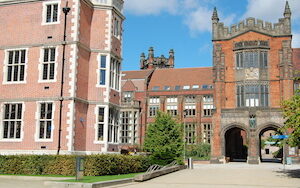A consortium led by Newcastle University has developed a small-scale off-grid combined heat and power (CHP) system incorporating an energy storage system (ESS).
The small-scale CHP system, funded by the Engineering and Physical Sciences Research Council (EPSRC), uses waste heat to provide cooling and heat as well as power. A domestic-scale tri-generation system of this type would be rated between 6kW and 9kW electricity.
The ESS is designed to provide dependable electricity and to cope with daily fluctuation demand for electricity without a connection to the grid. “Our solution was to incorporate advanced electrical storage into the system, both batteries and the latest supercapacitors, combined with innovative system control,” said Tony Roskilly, professor at Newcastle University.
To make the system greener and accessible for isolated homes in developing countries, the CHP is run by biofuels. “We developed a system for using the oils obtained from pressing crop seeds, like those from jatropha and croton,” said Roskilly. The crops can grow in harsh environments and do not affect food production, according to the researchers.
The team also included researchers from University of Leeds, University of Ulster and three Chinese universities.












